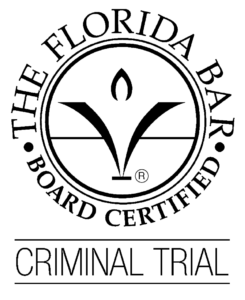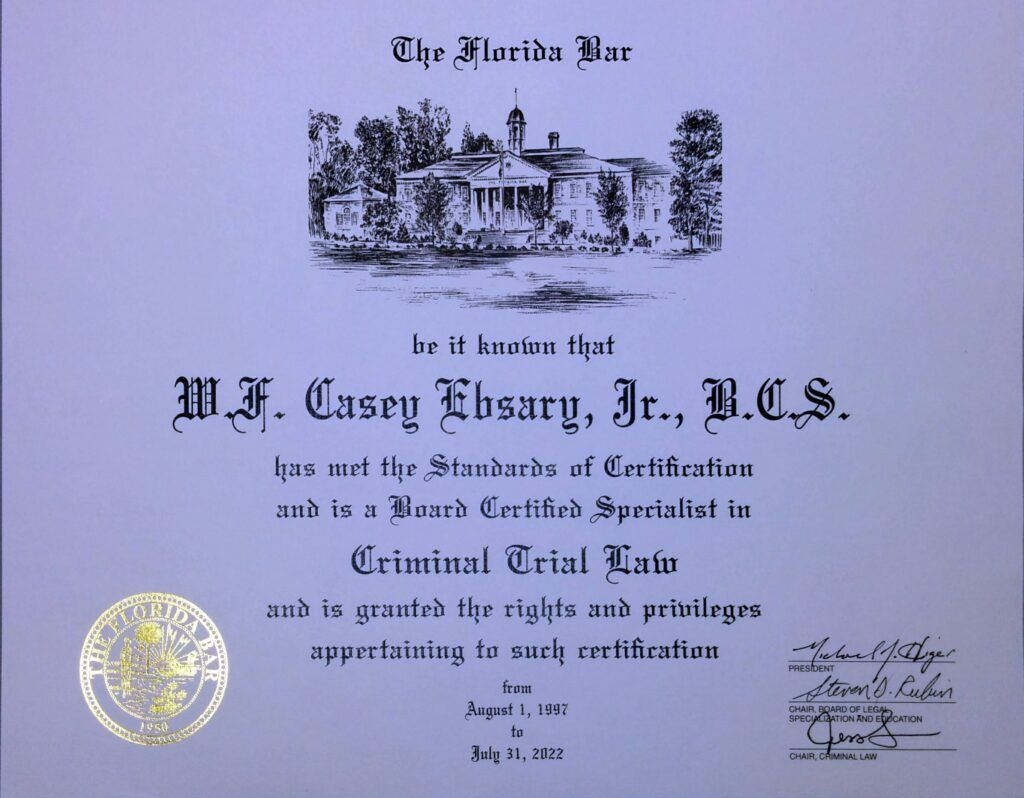
Tampa Florida DUI Jury Instructions
DUI Jury Instructions Overview
Jury instructions in a Florida DUI (Driving Under the Influence) case are the legal guidelines provided by the judge to the jury before they deliberate and reach a verdict. These instructions are meant to clarify the law and help the jury apply it to the specific facts of the case. Keep in mind that jury instructions may vary depending on the jurisdiction and the specific circumstances of the case, but here is a general overview of the types of instructions that might be given in a DUI trial:
1. Presumption of Innocence: The judge will instruct the jury that the defendant is presumed innocent until proven guilty beyond a reasonable doubt. They should not assume guilt but must consider all the evidence presented during the trial.
2. Elements of the Offense: The judge will explain the elements of the DUI offense that the prosecution must prove. This typically includes proving that the defendant was operating a motor vehicle while under the influence of alcohol or drugs.
3. Standard of Proof: The judge will explain that the burden of proof rests with the prosecution, and they must prove the defendant’s guilt beyond a reasonable doubt, which is a high standard of proof.
4. Impartiality: The jury will be instructed to remain impartial and not let any personal biases or prejudices influence their decision.
5. Evaluating Evidence: Instructions will be given on how to evaluate and consider the evidence presented during the trial, including testimony, documents, and physical evidence.
6. Expert Witnesses: If expert witnesses were called, the judge may provide instructions on how to consider their testimony.
7. Field Sobriety Tests: If relevant, the judge may instruct the jury on the various field sobriety tests used by law enforcement and how they should weigh the results.
8. Chemical Tests: Instructions may cover the use of chemical tests, such as breathalyzer or blood tests, and how to consider the results.
9. Reasonable Doubt: The judge will explain the concept of reasonable doubt and emphasize that if the jury has any reasonable doubt about the defendant’s guilt, they must acquit.
10. Deliberation: Instructions will be provided on how the jury should conduct deliberations, including the need for unanimous agreement on a verdict.
11. Verdict Options: The jury will be informed about the possible verdict options, which typically include guilty, not guilty, or in some cases, a lesser offense like reckless driving.
12. Jury Questions: The judge may instruct the jury on how to communicate with the court if they have questions during deliberations.
It’s important to note that these instructions can vary by jurisdiction and the specific charges involved in the DUI case. Jurors are expected to follow these instructions carefully to ensure a fair and just verdict based on the evidence presented during the trial.
Florida Standard Jury Instructions
Overview
In Florida, judges provide crucial instructions provided to juries when a DUI incident involves a crash or injury. These instructions serve as the legal roadmap for jurors, ensuring a fair and just trial. Jurors are guided through essential elements of the offense, such as the defendant’s impairment level, blood-alcohol concentration, and whether they caused property damage or injury. The instructions emphasize the presumption of innocence, the high burden of proof placed on the prosecution, and the need for impartiality in deliberations. Moreover, jurors are educated on key definitions, including the concept of “normal faculties” and “actual physical control” of a vehicle. In cases of inoperability, the defense is outlined, emphasizing that inoperability can be a valid defense if proven. These comprehensive instructions are vital in safeguarding the rights and fairness of DUI trials in Florida.
Official Florida DUI Standard Jury Instructions
§ 316.193(3)(a)(b)(c)1, Fla. Stat.
To prove the crime of Driving under the Influence Causing [Property Damage] [Injury], the State must prove the following three elements beyond a reasonable doubt:
1. (Defendant) drove or was in actual physical control of a vehicle.
2. While driving or in actual physical control of the vehicle, (defendant)
Give 2a or b or both as applicable.
a. was under the influence of [alcoholic beverages] [a chemical substance] [a controlled substance] to the extent that [his] [her] normal faculties were impaired.
b. had a [blood] [breath]-alcohol level of .08 or more grams of alcohol per [100 milliliters of blood] [210 liters of breath].
3. As a result of operating the vehicle, (defendant) caused or contributed to causing [damage to the property of (victim)] [injury to the person of (victim)].
Give if applicable. (Offenses committed prior to October 1, 2008, alcohol level of .20 or higher.)
If you find the defendant guilty of Driving under the Influence Causing [Property Damage] [Injury], you must also determine whether the State has proven beyond a reasonable doubt whether:
a. the defendant had a [blood] [breath]-alcohol level of .15 or higher while driving or in actual physical control of the vehicle.
b. the defendant was accompanied in the vehicle by a person under the age of 18 years at the time of the driving under the influence.
Definitions. Give as applicable.
Vehicle is every device, in, upon or by which any person or property is, or may be, transported or drawn upon a highway, except devices used exclusively upon stationary rails or tracks.
Normal faculties include but are not limited to the ability to see, hear, walk, talk, judge distances, drive an automobile, make judgments, act in emergencies and, in general, to normally perform the many mental and physical acts of our daily lives.
Actual physical control of a vehicle means the defendant must be physically in or on the vehicle and have the capability to operate the vehicle, regardless of whether [he] [she] is actually operating the vehicle at the time.
Alcoholic beverages are considered to be substances of any kind and description which contain alcohol.
( ) is a controlled substance under Florida law. Ch. 893,
Fla. Stat.
( ) is a chemical substance under Florida law. § 877.111(1), Fla. Stat.
When appropriate, give one or more of the following instructions on the presumptions of impairment established by § 316.1934(2)(a), (2)(b), and (2)(c), Fla. Stat.
1. If you find from the evidence that while driving or in actual physical control of a motor vehicle, the defendant had a blood or breath-alcohol level of .05 or less, you shall presume that the defendant was not under the influence of alcoholic beverages to the extent that [his] [her] normal faculties were impaired; but this presumption may be overcome by other evidence demonstrating that the defendant was under the influence of alcoholic beverages to the extent that [his] [her] normal faculties were impaired.
2. If you find from the evidence that while driving or in actual physical control of a motor vehicle, the defendant had a blood or breath-alcohol level in excess of .05 but less than .08, that fact does not give rise to any presumption that the defendant was or was not under the influence of alcoholic beverages to the extent that [his] [her] normal faculties were impaired. In such cases, you may consider that evidence along with other evidence in determining whether the defendant was under the influence of alcoholic beverages to the extent that [his] [her] normal faculties were impaired.
3. If you find from the evidence that while driving or in actual physical control of a motor vehicle, the defendant had a blood or breath-alcohol level of .08 or more, that evidence would be sufficient by itself to establish that the defendant was under the influence of alcoholic beverages to the extent that [his] [her] normal faculties were impaired. But this evidence may be contradicted or rebutted by other evidence demonstrating that the defendant was not under the influence of alcoholic beverages to the extent that [his] [her] normal faculties were impaired.
Defense of inoperability; give if applicable.
It is a defense to the charge of Driving under the Influence Causing [Property Damage] [Injury] if at the time of the alleged offense, the vehicle was inoperable. However, it is not a defense if the defendant was driving under the influence before the vehicle became inoperable. Therefore, if you are not convinced beyond a reasonable doubt that the vehicle was operable at the time of the alleged offense, you should find the defendant not guilty. However, if you are convinced that the vehicle was operable at the time of the alleged offense, then you should find the defendant guilty, if all the other elements of the charge have been proved beyond a reasonable doubt.




